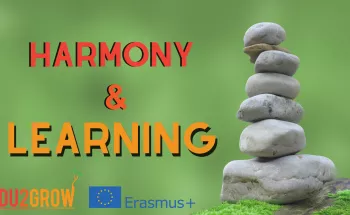
Spice up Formal Education
Topic/ theme: non-formal education methods to improve the learners’ motivation, activities and tools in the formal environment
At your request, the courses can be structured for a different schedule (5 or 7 training days).
Course fee: According to the Erasmus+ guide, 80 euros / training day, including course preparation, training, training materials, administration costs.
Description
Profile of the participants: The participants are teachers or adult trainers active in the sending organization interested in non-formal education methods, with or without previous experience, willing to develop themselves professionally not only through the course, but by involving themselves in preparatory and follow up activities. They must be interested in other cultures and in developing the institution’s European dimension.
Objectives:
– To develop competences regarding applying non-formal education in different formal settings in order to improve the motivation of the students
– To stimulate the participants to feel and reflect about the power of Non-Formal Education (NFE) by experimenting different kind of non-formal educational methods
– To explore meanings, roles and complementary of different educational dimensions (formal, non-formal, informal).
– To share best practices and transfer knowledge and methods between different cultural zones and different learner ages
– To develop tools (a guide, a digital game etc.) about ways of applying non-formal education in the formal environment for different age groups
– To enable participants in non-formal activities and techniques for their own teaching context in order to improve the motivation of their students, and to reconsider daily education-work practices
– To increase participants’ confidence in working with non-formal methods, using their own qualities, talents, differences, as well as the collective intelligence of the home team they will guiding in the valorisation process
– To promote European cooperation in the field of education within the framework of the Erasmus+ program by partnership building
Learning objectives
Learning outcomes:
By participating in this training course, the participants will:
– develop competences regarding applying non-formal education in different formal settings in order to improve the motivation of the students
– learn how to stimulate use about the power of Non-Formal Education (NFE) by experimenting different kind of non-formal educational methods
– explore meanings, roles and complementary of different educational dimensions (formal, non-formal, informal).
– share best practices and transfer knowledge and methods between different cultural zones and different learner ages
– learn how to develop tools (a guide, a digital game etc.) about ways of applying non-formal education in the formal environment for different age groups
– take part in non-formal activities and techniques for their own teaching context in order to improve the motivation of their students, and to reconsider daily education-work practices
– have better confidence in working with non-formal methods, using their own qualities, talents, differences, as well as the collective intelligence of the home team they will guiding in the valorization process
– learn how to promote European cooperation in the field of education within the framework of the Erasmus+ program by partnership building
Methodology & assessment
Most of the educational approaches are inspired from constructivist pedagogy. The training course has a holistic approach:
Experiencing: different educational settings, different non formal education methods (role play, simulation game, exercises etc.)
Reflecting: on the methods and its impacts, on the power and limits of non-formal education, on building a pedagogical process etc.
Transferring: to the own reality of participants, in order to improve ways of working with their students
Sharing: different perceptions, current situations and experiences.
Developing: the building capacity of the participants (to be transferred to their students) by including them in the decision process of the training course designing
Certification details
EUROPASS MOBILITY DOCUMENT
CERTIFICATE OF ATTENDANCE
Additional information
-
Language:English
-
Target audience ISCED:Early childhood education (ISCED 0)Primary education (ISCED 1)Upper secondary education (ISCED 3)
-
Target audience type:Head Teacher / PrincipalTeacherTeacher Educator
-
Learning time:25 hours or more
Past sessions
More courses by this organiser

Spice up Formal Education – Erasmus+ - Training Course In Malaga, Spain - February 2025

Harmony and learning! - Training Course In Malaga, Spain - February 2025


